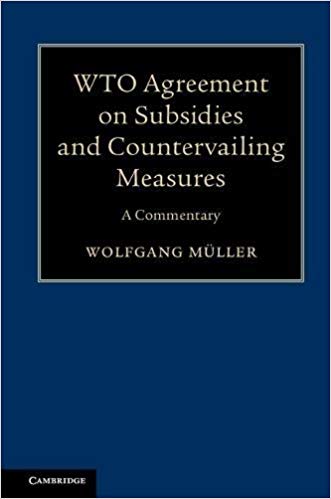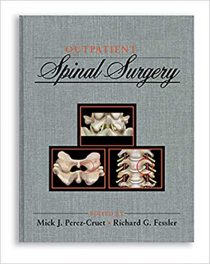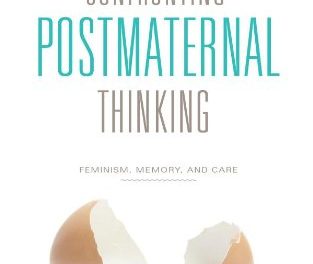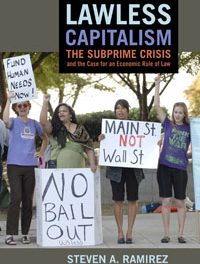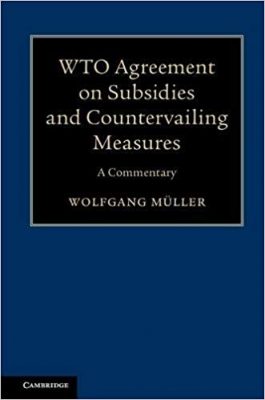 Author: Wolfgang Muller
Author: Wolfgang Muller
Publisher: Cambridge University Press – 736 pages
Book Review by: Sonu Chandiram
On the back cover of this book, there is this helpful note about its usefulness:
“Panels and the WTO Appellate Body have rendered a large number of complex and lengthy rulings on the WTO Agreement on Subsidies and Countervailing Measures (known in short as ASCM). The reasoning behind these rulings is often intimately linked to the underlying facts of a particular case and the methods of litigation adopted by the parties.”
“Without guidance, it is difficult to find and research a specific subsidy issue quickly. This book provides an essential article-by-article commentary on the Agreement and sets out the law as it emerges from this body of rulings, providing the legal basis for further analysis of subsidy disciplines within the realms of economics and political science.”
It also provides a summary of the negotiating history and the links to other WTO Agreements, such as the GATT 1994. This important reference work will appeal to international trade lawyers, government officials, researchers, students of international trade law, business associations and non-governmental organizations (NGOs).”
Indeed, this is an important guide in the area of international trade, with specific rulings on various types of conflicts and disputes. What better, highly time-saving way to start the process of searching for an issue similar to yours, and coming to a resolution of your issue?
This book covers and discusses 32 topics organized around 11 Parts, as listed below:
Introduction
Commentary
- Part I – General Provisions
- Article 1 – Definition of a Subsidy
- Article 2 – Specificity
- Part II – Prohibited Subsidies
- Article 3 – Prohibition
- Article 4 – Remedies
- Part III – Actionable Subsidies
- Article 5 – Adverse Effects
- Article 6 – Serious Prejudice
- Article 7 – Remedies
- Part IV – Non-Actionable Subsidies
- Article 8 – Identification of a Non-Actionable Subsidy
- Article 9 – Consultation and Authorized Subsidies
- Part V – Countervailing Measures
- Article 10 – Application of Article VI of GATT 1994
- Article 11 – Initiation and Subsequent Investigation
- Article 12 – Evidence
- Article 13 – Consultations
- Article 14 – Calculation of Amount of a Subsidy in Terms of Benefit to the Recipient
- Article 15 – Determination of injury
- Article 16 – Definition of Domestic Industry
- Article 17 – Provisional Measures
- Article 18 – Undertakings
- Article 19 – Imposition and Collection of Countervailing Duties
- Article 20 – Retroactivity
- Article 21 – Duration and Review of Countervailing Duties and Undertakings
- Article 22 – Public Notice and Explanation of Determinations
- Article 23 – Judicial Review
- Part VI – Institutions
- Article 24– Committee on Subsidies and Countervailing Measures and Subsidiary Bodies
- Part VII – Notifications and Surveillance
- Article 25 – Notifications
- Article 26 – Surveillance
- Part VIII – Developing Country Members
- Article 27 – Special and Differential Treatment of Developing Country Members
- Part IX – Transitional Arrangements
- Article 28 – Existing Programmes
- Article 29 – Transformation into a Market Economy
- Part X – Dispute Settlement
- Article 30 – Discussion of Articles XXII and XXIII of GATT 994
- Part XI – Final Provisions
- Article 31 – Provisional Application
- Article 32 – Other Final Applications
The World Trade Organization (WTO) consists of 160 member countries (as of 2017 when this book was published) and its Agreement on Subsidies and Countervailing Measures (ASCM) is one of its major accomplishments. This agreement came into existence sometime during the course of the well-known Uruguay Round of multinational trade negotiations (MTNs) that spanned from 1986 to 1993.
Our world revolves around trade, and trade has become critically important to us, as we have become increasingly interdependent on one another for products not found within our national boundaries, and services that enhance the quality of our lives, but are not always readily available where we live.
While the benefits of buying and selling products among ourselves are so numerous, trade rules are necessary to avoid conflicts. That is where the value of agreements can be easily appreciated. This book of over 700 pages provides the details of trade among nations that are necessary for harmonious relationships among ourselves, and it is quite comprehensive
Author: Wolfgang Muller works in the European Commission (Directorate General for Trade) and heads the policy unit of the Commission’s trade remedy services and in this capacity represents the European Union in the relevant World Trade Organization (WTO) committees.

